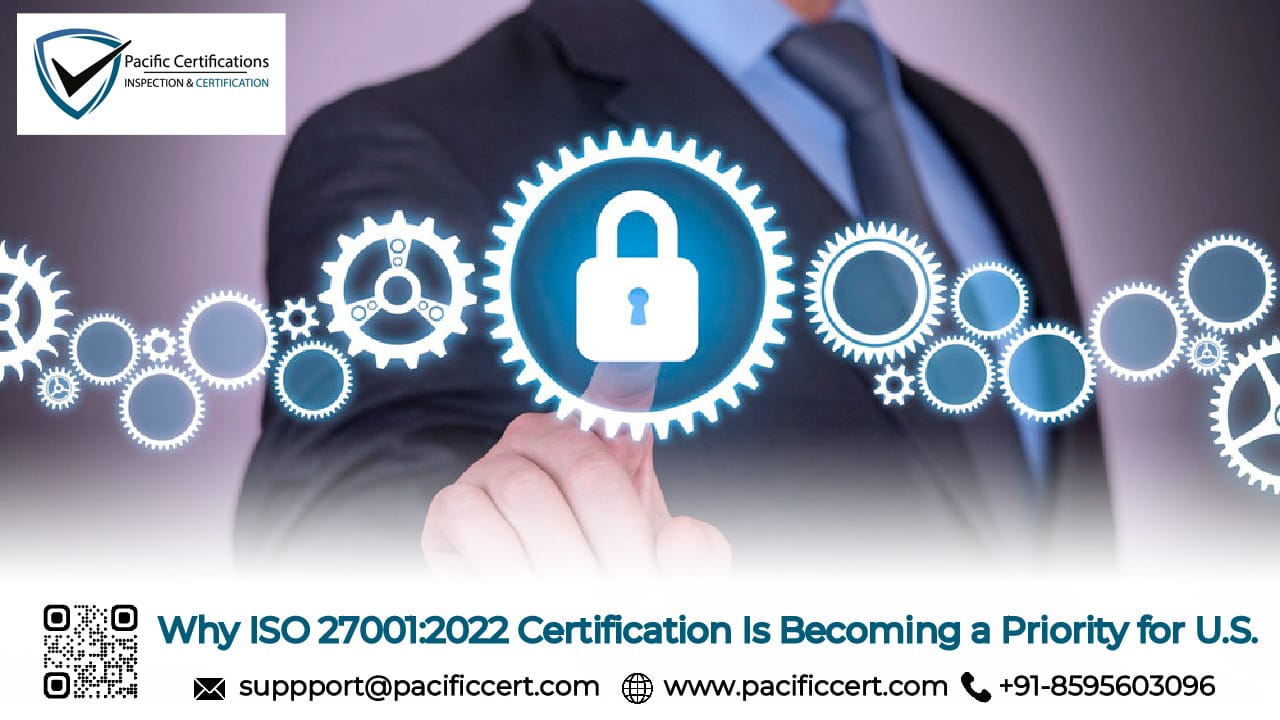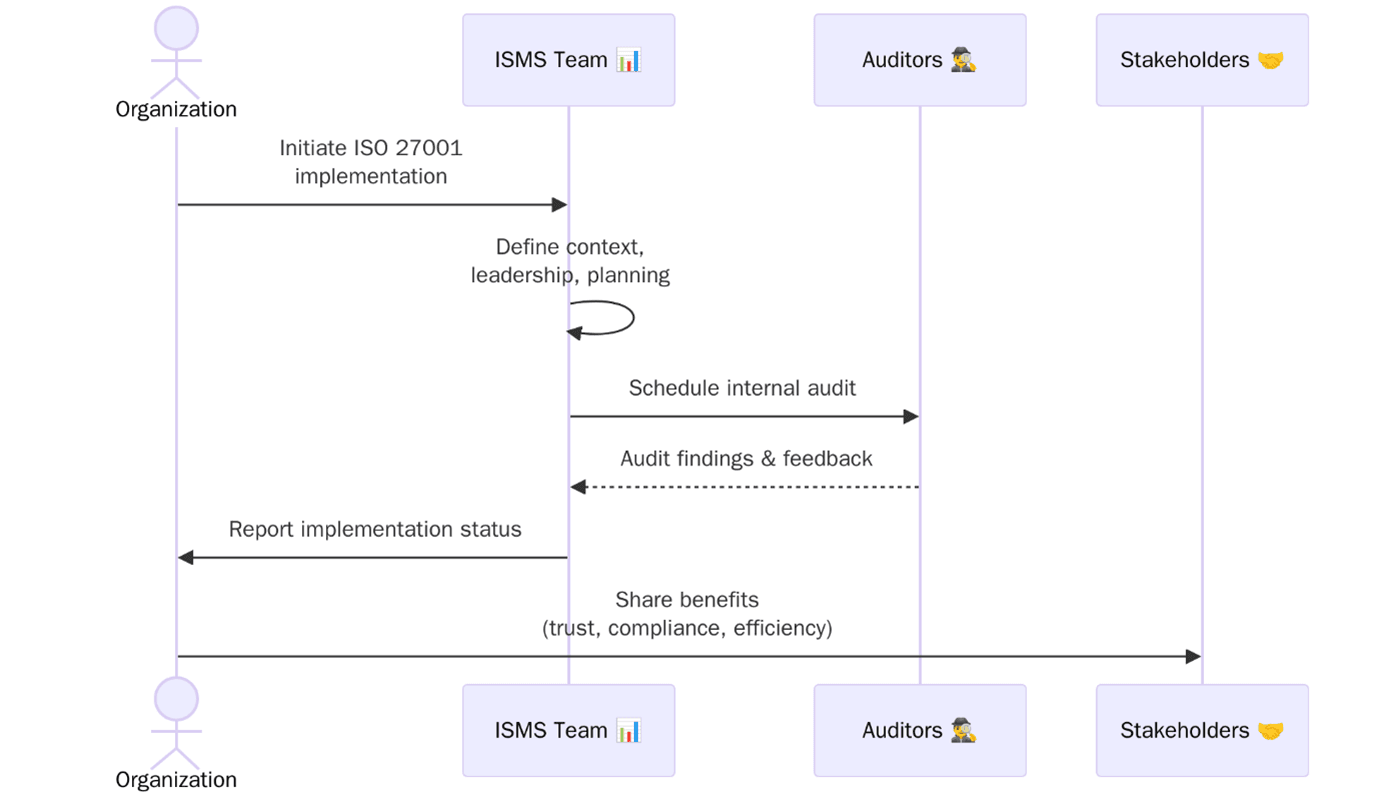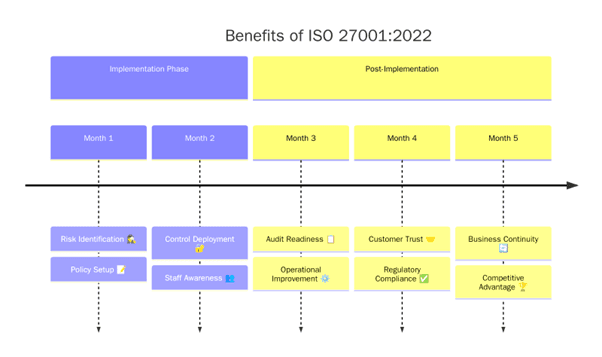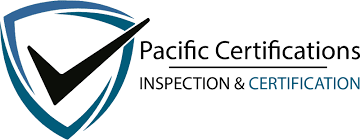Why ISO 27001:2022 Certification Is Becoming a Priority for U.S. Tech Companies

As cyber threats grow more sophisticated and data privacy regulations become stricter, U.S. tech companies, from startups to enterprise giants are turning to ISO/IEC 27001:2022 certification for their information security strategy.
ISO 27001, the globally recognized standard for Information Security Management Systems (ISMS), enables organizations to identify, manage, and reduce information security risks.
Understanding ISO 27001:2022 Certification
ISO/IEC 27001:2022 is the latest revision of the international standard that outlines requirements for establishing, implementing, maintaining, and continually improving an Information Security Management System (ISMS).

While the core principles remain consistent with earlier versions, the 2022 revision introduces changes such as:
- Updated structure aligned with Annex SL
- Revised terminology (information security objectives now includes “security requirements”)
- Aligned and modernized control sets (now grouped under 4 themes: Organizational, People, Physical, and Technological)
Why It Matters for Tech Companies
Tech companies operate in a highly dynamic digital environment where cyber threats, data privacy concerns, and regulatory compliance pressures intersect. ISO 27001 certification serves as a critical assurance mechanism, allowing these organizations to demonstrate that they are taking structured steps to secure their information assets. For cloud service providers, SaaS businesses, and platforms handling user or customer data, this certification is often the first requirement clients look for when evaluating vendors or entering into partnerships.
By aligning with ISO 27001, companies can create trust in their internal systems and assure stakeholders that their approach to information security is strategically embedded into their operations. In a climate where breaches can lead to both financial and reputational losses, ISO 27001 has become a strategic necessity.
We at Pacific Certifications can guide you through a smooth ISO 27001:2022 certification process tailored to your environment. To get started, contact our expert team at [email protected].
ISO 27001:2022 Certification Requirements
To achieve certification, a tech company must establish and document an Information Security Management System (ISMS) that addresses the controls specified in ISO 27001.

Key Requirements Include:
- Leadership Commitment: Top management must actively support the ISMS.
- Context of the Organization: Define internal and external issues affecting security.
- Risk Assessment and Treatment: Identify and evaluate information security risks.
- Policies and Procedures: Establish rules for access control, data handling, and incident response.
- Asset Management: Maintain inventory and classification of all information assets.
- Annex A Controls: 93 controls grouped into four categories—Organizational, People, Physical, Technological.
- Internal Audits and Management Review: Ongoing monitoring and continual improvement.
Documentation Required:
- Information Security Policy
- Statement of Applicability (SoA)
- Risk Assessment Report
- Incident Response Plan
- Access Control Policy
- Internal Audit Records
Tech firms map these controls to software development, cloud hosting, DevOps processes, and third-party integrations.
To know more about ISO 27001 certification process, please contact us at [email protected].
ISO 27001:2022 Certification Process
The certification process involves structured stages that evaluate your ISMS's effectiveness, documentation, and risk control.
Step-by-Step Certification Process:
- Gap Assessment (Optional):
- Identify gaps between your current practices and ISO 27001 requirements.
- ISMS Development:
- Draft policies, conduct risk assessments, and implement controls.
- Internal Audit:
- Conduct internal audits to ensure readiness for external review.
- Management Review:
- Leadership evaluates ISMS effectiveness and addresses findings.
- Stage 1 Audit:
- A certification body like Pacific Certifications reviews ISMS documentation.
- Stage 2 Audit:
- On-site or remote assessment of actual implementation and controls.
- Certification Decision:
- Certificate is granted if no major nonconformities are found.
- Surveillance Audits (Yearly):
- To ensure ongoing compliance and improvements.
- Recertification (Every 3 Years):
- A full reassessment of the ISMS.
This process can take 3–6 months, depending on your organization's size, preparedness, and complexity.
Benefits of ISO 27001 for Tech Companies
Implementing ISO 27001 delivers tangible operational and strategic value for tech-driven businesses.

Key Benefits:
- Reduces risk of data breaches and cyberattacks.
- Supports adherence to GDPR, CCPA, HIPAA, and other frameworks.
- Clients value certified assurance that their data is protected.
- Sets you apart in RFPs, partnerships, and B2B negotiations.
- Encourages documentation, accountability, and business continuity.
- Provides a framework to evaluate vendors and service providers.
In a highly competitive and risk-prone tech ecosystem, ISO 27001 often becomes a prerequisite rather than an option.
If you are looking for ISO 27001 for your business, contact [email protected]
ISO 27001:2022 Certification Cost for U.S. Tech Companies
The cost of ISO 27001:2022 certification in the United States varies based on several factors, including the size of the organization, the complexity of its operations, the scope of the certification, and the maturity level of its existing information security practices.
Smaller tech startups with fewer processes and assets to manage can expect a more straightforward certification pathway, which generally results in lower costs. In contrast, larger organizations often require more extensive audits, higher levels of documentation, and broader control implementation, all of which contribute to increased expenses.
To receive an accurate, no-obligation quote for your organization’s ISO 27001 certification, reach out to Pacific Certifications at [email protected].
ISO 27001 Certification Timeline: What to Expect
On average, ISO 27001 certification takes 3 to 6 months, but this can vary widely:
- Weeks 1–4: Gap analysis, project planning, ISMS scoping
- Weeks 5–10: Risk assessments, policy development, documentation
- Weeks 11–14: Training, tool deployment, internal audits
- Weeks 15–18: Management review and readiness assessment
- Weeks 19–24: Stage 1 and Stage 2 audits, certification issuance
Expedited paths (under 3 months) are possible for startups or companies that already have strong documentation or limited scope.
Why U.S. Tech Firms Are Prioritizing ISO 27001
The prioritization of ISO 27001:2022 certification by U.S. technology companies is closely tied to evolving cybersecurity threats, growing client demands, and increased regulatory scrutiny. In 2023 alone, the United States experienced more than 1,800 publicly disclosed data breaches, impacting over 422 million individuals, according to the Identity Theft Resource Center. These incidents have highlighted the critical need for structured information security management systems, especially among technology companies that deal with massive volumes of sensitive data across SaaS platforms, cloud infrastructures, and decentralized global teams.
Clients, especially in regulated industries like finance, healthcare, and government contracting, now routinely require vendors to be ISO 27001 certified as part of their procurement due diligence. For B2B SaaS providers and enterprise tech platforms, certification is increasingly seen not as a differentiator, but as a mandatory baseline for securing high-value contracts. A recent survey by Statista revealed that over 70% of organizations consider data security and compliance as a key factor when selecting technology partners.
At the same time, tech firms preparing for IPOs, mergers, or large funding rounds are under growing pressure from investors to show strong governance and cyber risk management systems. ISO 27001 certification sends a clear message to stakeholders that the company has implemented a globally recognized, independently verified framework for managing information security risks.
Furthermore, regulations such as the General Data Protection Regulation (GDPR) in Europe, the California Consumer Privacy Act (CCPA), and sector-specific mandates like HIPAA in healthcare are pushing tech companies to adopt proactive, auditable compliance mechanisms—making ISO 27001 a strategic investment rather than an operational cost.
For startups and scale-ups looking to expand internationally, ISO 27001 also serves as a universal language of trust. It facilitates smoother entry into markets where local data privacy laws mirror ISO principles, reducing barriers and accelerating go-to-market timelines.
For consultation and a customized certification plan, contact us at [email protected].
Secure Growth Starts with ISO 27001
ISO 27001:2022 certification is all about securing your future. For U.S. tech companies, it offers a globally accepted blueprint to protect digital assets, assure clients, and meet compliance with confidence.
Whether you’re an early-stage startup preparing for SOC 2 readiness or an enterprise looking to enhance your cyber governance, ISO 27001 helps you move forward securely.
How Pacific Certifications Can Help
Pacific Certifications is an accredited certification body offering ISO 27001:2022 audit and certification services tailored to the needs of tech companies across the USA and globally.
We offer:
- Gap assessments and pre-certification consulting
- On-site and remote audits
- Support across all ISO management systems
- Seamless, efficient, and credible certification experience
Contact us at:
📧 [email protected]
🌐 www.pacificcert.com
Ready to get ISO 9712:2021 certified?
Contact Pacific Certifications to begin your certification journey today!
Suggested Certifications –
Read more: Pacific Blogs

